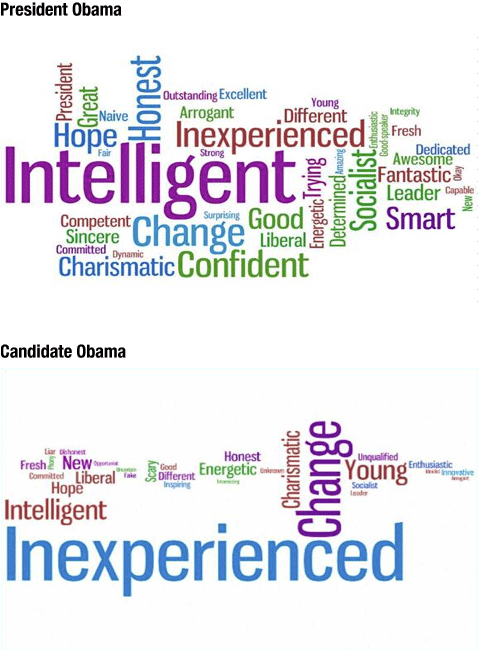Last Monday night, the three leading Democratic presidential candidates appeared on CNN at a Sojourners sponsored forum. Clinton, Obama and Edwards individually sat down with Soledad O'Brien to discuss the role of faith in their lives.
I have to admit, I watched this event with more interest than I did either of the two debates it was sandwiched between last week.
I thought to myself, "Ah, they finally get it."
But, it appears I'm in the minority on this point here at DKos. A good number of Kossacks viewed the event as an attack on the separation between Church and State. By choosing to "wear their faith on their sleeves" our candidates had accepted the Religious Right's framing of the debate. Some viewed the forum as the Democrats making a Faustian deal to attain power.
I'm sorry, but I do not agree. Give me a chance to explain below the fold.
Before I begin, let me say upfront - I myself am not a churchgoer - I'm a gay man who experienced firsthand the hypocrisy of organized religion. I have chosen a spiritual path unique to me. As such, I do not attempt to evangelize - and I cringe when I see, hear and witness those who do.
But, when I see Democratic presidential candidates talking about faith, I do not get angry, as many others here do. On Monday night, I did not hear any of the candidates telling me their beliefs should be mine.
We must understand that faith matters - not only to the candidate, but also to the voters they are courting. Pew Research has some interesting findings on "the faith-based partisan divide." They report that in the 2004 presidential election
"voters sorted themselves out not just by policy preferences and demographic traits but also by the depth of their religious commitment. In fact, whether a person regularly attends church (or synagogue or mosque) was more important in determining his or her vote for president than such demographic characteristics as gender, age, income, and region and just as important as race."* (emphasis added)
Democrats have ignored the votes of Americans who worship regularly for far too long, essentially allowing the unholy marriage between the Religious Right and the Republican Party free reign to define the "values" debate. As such, "values voting" today equals abortion and gay marriage. Long gone are the days when environmental stewarship, social and racial justice, peace and anti-poverty issues defined religious involvement in the public sphere.
A generation of Americans has grown up equating going to church with voting Republican. In a nation of churchgoers, that's a serious strategic mistake.
The Religious Right has been so successful in their assault on the separation of church and state and infiltrating the Republican Party that *anyone* who discusses religion is assumed to share the view that government is a tool for religious indoctrination. Any politician who publicly discusses faith must favor dismantling the wall between church and state. Any religious figure in the public sphere must be aligned with the Falwell/Robertson/Dobson fundamentalist fascists.
I find myself wondering, "What would Martin Luther King, Jr. think?"
Can progressive religious leaders redefine the debate? I believe they can. In fact, they must.
Why?
* Because the war in Iraq is a moral issue.
* Because the rapidly growing gap between rich and poor in this country is a moral issue.
* Because climate change is a moral issue.
* Because providing affordable healthcare for all is a moral issue.
That's what Edwards, Clinton and Obama tried to say last Monday night. Where they 100% successful? Not even close. But, at least they engaged in the conversation.
Sojourners is not the only organization working to counter the influence of the Religious Right. Many more are participating in the dialogue. In fact, it's likely that if you look to the top of this page, you'll find a banner proclaiming the existence of a group called "Street Prophets" - there's a progressive spiritual discussion going on here only a click or two away.
In addition to Sojourners, there are The Interfaith Alliance, Tikkun, and many others. Are they smaller and less-financed than the Religious Right? Certainly.
Progressive advocacy groups like People For the American Way have ordained ministers on their staff. In fact, PFAW has a report documenting a shift of the religious vote toward Democrats between the 2004-2006 elections: Exit Polls Show the Partisan 'God Gap' Cut in Half from 2004.
Over the years, I've worked with many organizations like these - and I have to say there is a keen understanding of what they're up against. There is genuine heartbreak - and anger - at the fact the Religious Right has effectively redefined what it means to be Christian. None of the people I met while working with these organizations believed countering the power of the Religious Right would be a short-term project.
Additionally, it is relevant to point out that advocacy organizations spanning the progressive spectrum acknowledge the role of faith in our personal and public lives. Even LGBT organizations like HRC and NGLTF have faith-outreach programs; environmental groups are developing strategies to talk to evangelicals - who are awakening to the realization the GOP hasn't exactly been a good steward of the planet.
Will progressives be successful in reframing the definition of "values voting"? The answer is to be determined.
The netroots community can make a difference on this. I encourage Kossacks to join in the conversation. Visit the organizations' websites I've mentioned above. And, let's allow our candidates the freedom to engage in this dialogue without fear of recrimination from their base.





No comments:
Post a Comment